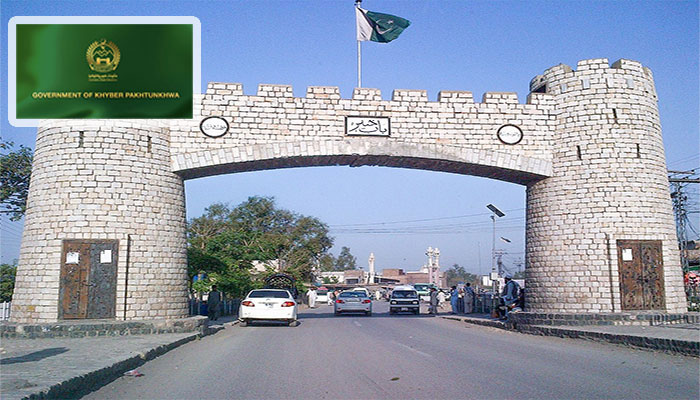Controversy erupts over amendment to Police Act 2017
PESHAWAR: The Khyber Pakhtunkhwa government has decided to amend the Police Act 2017, which has sparked controversy in the province. The PTI government is calling the amendment bill necessary for an impartial accountability of the police in the province.
The government claims that the proposed bill is not final and further consultations are under way. Police sources, however, termed the bill as deprivation of police powers and interference in policing, which would affect the performance and independence of the police.
Former IGs had also opposed the proposed legislation. They said the PTI government made history by giving operational autonomy to the KP Police and making it apolitical, professional and accountable. On the contrary, this unique achievement is being undone. If the vested interests succeed in their designs, these landmark achievements will stand nullified.
According to the proposed draft available with this scribe, the provincial government wants to hold the police accountable impartially and effectively. The amendments will improve relations between the police and people. One bill has been named KP Inspectorate of Criminal Justice Services 2021 while the other bill has been named Khyber Pakhtunkhwa Independent Police Complaints Authority 2021. However, with the approval of the bills, the Police Complaints Authority and the Public Safety Commissions included in the Police Act 2017 will be abolished and an alternative system will be introduced.
The government will appoint a director-general and five chief inspectors to hold the police accountable under the Inspectorate of Criminal Justice Services 2021. The new body will cover Khyber Pakhtunkhwa Police, Prosecution Service, Prisons, Khyber Pakhtunkhwa Probation and Parole Services, Khyber Pakhtunkhwa Forensic Science Agency. The Inspectorate will have the power to appoint advisors, consultants, and relevant experts for inquiry/research into any matter. The Inspectorate will send any inquiry and inspection report to the head of the provincial government and the agency concerned for necessary action. It will refer a case to the chief minister for action against any officer of grade 17 and above, who will forward it to the head of the institution concerned. An inspection shall be conducted after prior notice unless it is a surprise inspection. A surprise inspection shall not be conducted unless so directed by the chief minister. An inspection will be conducted by a team of two or more inspectors.
An officer of the Criminal Justice Service, who does not provide access to record or data or information to comply with the inspection report should be guilty of misconduct and liable to be proceeded against in a manner as prescribed. No suit prosecution or other legal proceedings shall lie against an officer of the Inspectorate in respect of anything done. The chief inspector will review the performance of the police. He will also be able to visit various offices and police stations to get any kind of record.
The Khyber Pakhtunkhwa Independent Police Complaints Authority will consist of a chairman and five members. The chairman should hold office for a period of three years. The authority will be headquartered in Peshawar and have offices in all regions. The authority will receive complaints against police personnel and will oversee inquiries. The chief minister will be able to send complaints to the authority. All agencies will be required to provide records to the authority which will be able to nominate any official who will have access to various police offices and records.
The following instances shall be considered to be cases of recordable conduct and any citizen will be able to approach the authority. It is pertinent that the Association of Former Inspectors General of Police (AFIGP) has already apprised the prime minister of the KP government’s intentions to roll back the operational autonomy of the police by amending the KP Police Act.
According to their letter, this is being done on the same plea that the police have become very powerful without any accountability. The fact is that accountability bodies as laid down in the Act have not been set up by the government despite a lapse of over three years on flimsy grounds. There is no impediment in now setting up the Provincial and District Safety Commissions or the Regional Complaint Authority so that an equitable, fair and balanced picture could emerge.
The PTI government made history by giving operational autonomy to the KP Police and making it apolitical, professional and accountable. On the contrary, this unique achievement is being undone. If the vested interests succeed in their designs, these landmark achievements will stand nullified.
-
 Kelly Osbourne's Mom Sharon Receives 'shut Up' Call Accepting An Award For Late Hubby?
Kelly Osbourne's Mom Sharon Receives 'shut Up' Call Accepting An Award For Late Hubby? -
 Claude Overtakes ChatGPT On Apple App Store After Pentagon Dispute
Claude Overtakes ChatGPT On Apple App Store After Pentagon Dispute -
 What Happened To Ayatollah Ali Khamenei's Family During US -Israel Attack On Iran
What Happened To Ayatollah Ali Khamenei's Family During US -Israel Attack On Iran -
 BRIT Awards 2026 Winners Revealed
BRIT Awards 2026 Winners Revealed -
 Shia LaBeouf Arrested Again In New Orleans On Additional Battery Charge
Shia LaBeouf Arrested Again In New Orleans On Additional Battery Charge -
 Shamed Andrew Upset With THIS Family Member Over Current Condition
Shamed Andrew Upset With THIS Family Member Over Current Condition -
 Michael Jackson Estate Sued With Allegations Of Years Of Abuse From Late Singer
Michael Jackson Estate Sued With Allegations Of Years Of Abuse From Late Singer -
 Meghan Markle Shows ‘real Pain’ With Her Body Language In Jordan
Meghan Markle Shows ‘real Pain’ With Her Body Language In Jordan -
 Jennifer Garner Names Her Movie That She Hasn't Seen In Full Since Its Premiere
Jennifer Garner Names Her Movie That She Hasn't Seen In Full Since Its Premiere -
 Bridgerton’s Michelle Mao On Facing Backlash As Season Four Antagonist
Bridgerton’s Michelle Mao On Facing Backlash As Season Four Antagonist -
 King Charles Gets New ‘secret Weapon’ After Andrew Messes Up
King Charles Gets New ‘secret Weapon’ After Andrew Messes Up -
 Shia LaBeouf Makes Bold Claim About Homosexuals In First Interview After Mardi Gras Arrest
Shia LaBeouf Makes Bold Claim About Homosexuals In First Interview After Mardi Gras Arrest -
 Princess Beatrice, Eugenie ‘strained’ As They Are ‘not Turning Back’ On Andrew
Princess Beatrice, Eugenie ‘strained’ As They Are ‘not Turning Back’ On Andrew -
 Benny Blanco Addresses ‘dirty Feet’ Backlash After Podcast Moment Sparks Online Frenzy
Benny Blanco Addresses ‘dirty Feet’ Backlash After Podcast Moment Sparks Online Frenzy -
 Sarah Ferguson Unusual Trait That Confused Royal Expert
Sarah Ferguson Unusual Trait That Confused Royal Expert -
 Prince William, Kate Middleton Left Sarah Ferguson Feeling 'worthless'
Prince William, Kate Middleton Left Sarah Ferguson Feeling 'worthless'




